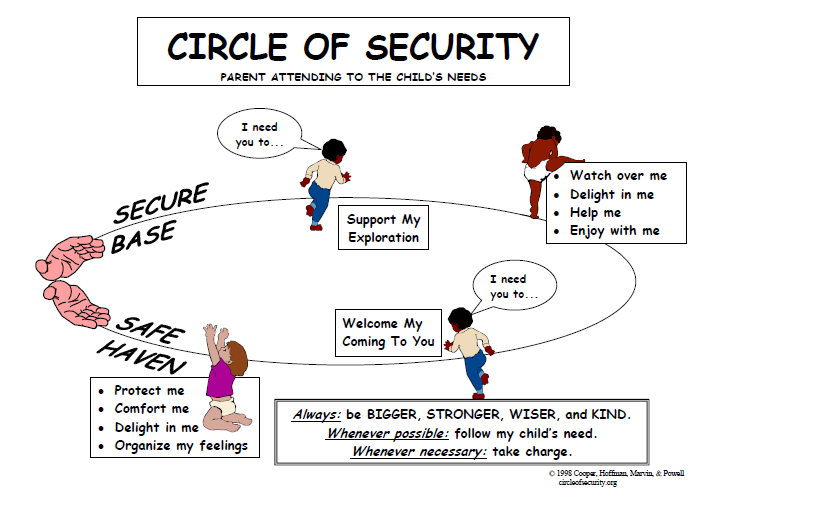Depression
Depression can lead to emotional and physical problems. Typically, people with depression find it hard to go about their day-to-day activities, and may also feel that life is not worth living.
More on Depression: Fact sheets on Post-Natal Depression (PND) can be found at PANDA: http://www.panda.org.au Other free depression resources and Information can be found at Beyond Blue: http://www.beyondblue.org.au kids help line: 1800 55 1800 www.kidshelpline.com.au lifeline australia: 13 11 14 www.lifeline.org.au Suicide Call Back Service: 1300 659 467 https://www.suicidecallbackservice.org.au |
|
AnxietyIntroduction to anxiety
Physical effects of anxiety Recognising anxious thinking Dealing with our anxious thinking Effects of anxiety on mood and behaviour Dealing with setbacks and final thoughts |
Stress is an expected human response to challenging or dangerous situations. There is good evidence that humans have evolved over time to be able to experience a range of stressors and recover from them.
Experiencing stress is part of being alive. A small amount of stress, such as meeting a challenge or deadline can actually be helpful. It can lead to increased alertness, energy and productivity. A complete lack of stress can lead to reduced motivation and performance. Stress triggers off the ‘fight or flight’ response, preparing the body to take action against potential danger. Hormones such as adrenaline and cortisol are released, causing the heart rate, metabolism and breathing rate to speed up. This works well for short-term threats but if the stress response goes on for too long, it can have damaging effects on the mind and body. |
PTSD
Types of treatment for post-traumatic stress disorder (PTSD)
For information on the psycho-physiological impacts of trauma visit the following weblink: http://www.trauma-pages.com/a/vanderk4.php
- Trauma-focused cognitive-behavioral therapy. Cognitive-behavioral therapy for PTSD and trauma involves carefully and gradually “exposing” yourself to thoughts, feelings, and situations that remind you of the trauma. Therapy also involves identifying upsetting thoughts about the traumatic event–particularly thoughts that are distorted and irrational—and replacing them with more balanced picture.
- Family therapy. Since PTSD affects both you and those close to you, family therapy can be especially productive. Family therapy can help your loved ones understand what you’re going through. It can also help everyone in the family communicate better and work through relationship problems caused by PTSD symptoms.
- EMDR (Eye Movement Desensitization and Reprocessing) incorporates elements of cognitive-behavioral therapy with eye movements or other forms of rhythmic, left-right stimulation, such as hand taps or sounds. Eye movements and other bilateral forms of stimulation are thought to work by “unfreezing” the brain’s information processing system, which is interrupted in times of extreme stress
For information on the psycho-physiological impacts of trauma visit the following weblink: http://www.trauma-pages.com/a/vanderk4.php
Alcohol & Drugs
Apps
Information
Information
- Anxiety and substance use Download from UNSW
- Mood and substance use Download from UNSW
- Personality and substance use Download from UNSW
- Psychosis and substance use Download from UNSW
- Trauma and substance use Download from UNSW
Eating Disorders
|
Self-help Programme - Part 1 Self-help Programme - Part 2 |
Relationship & Intimacy
Brene Brown Course: The Power of Vulnerability
Is vulnerability the same as weakness? “In our culture,” teaches Dr. Brené Brown, “we associate vulnerability with emotions we want to avoid such as fear, shame, and uncertainty. Yet we too often lose sight of the fact that vulnerability is also the birthplace of joy, belonging, creativity, authenticity, and love.” The Power of Vulnerability with Brené Brown offers an invitation and a promise—that when we dare to drop the armor that protects us from feeling vulnerable, we open ourselves to the experiences that bring purpose and meaning to our lives. In this video learning course, Dr. Brown dispels the cultural myth that vulnerability is weakness and reveals that it is, in truth, our most accurate measure of courage.
Articles by Dr. Sue Johnson (Emotion-Focused Couples Therapy)
Ten Tips for a Strong Vibrant Relationship
The Three Kinds of Sex
What You Need to Know About Love
Where Does Love Go Wrong?, or The Three Demon Dialogues That Can Wreck Your Relationship.
Parenting & Attachment
|
Positive Parenting Program (Triple P) When it comes to raising kids and teenagers, everyone has an opinion. There are so many ideas out there. So how do you know what’s best and what works? The Triple P – Positive Parenting Program ® takes the guesswork out of parenting. It is one of the few parenting programs in the world with evidence to show it works for most families. Triple P gives parents simple tips to help manage the big and small problems of family life. Problems like toddler tantrums or teenage rebellion. Self-esteem issues. Bedtime battles. Disobedience. Aggression. Triple P can help you deal with them all – and more! https://www.kidsmatter.edu.au/mental-health-matters/social-and-emotional-learning Circle of Security (Attachment Based Parenting) “I am here and you are worth it.” Jude Cassidy Ph.D University of Maryland As a parent-- ALWAYS: be bigger, stronger, kinder and wise WHENEVER POSSIBLE: follow my child’s need WHENEVER NECESSARY: take charge Bigger, stronger, without kind can be experienced as “mean” Kind without bigger, stronger can be experienced as “weak” The absence of these is experienced as “gone” |
|
Mindfulness
Mindfulness is a practice in which you focus entirely on the present. Your current thoughts, feelings, and sensations are accepted without judgment. The benefits of mindfulness can be transformational — physically and mentally, in personal and professional relationships, and in your understanding and acceptance of yourself.
What Is Mindfulness? In Buddhist writings, our minds are referred to as “monkey minds.” Just as monkeys screech and chatter as they swing from tree to tree, so do our minds chatter away, swinging from thought to thought.
Mindfulness enables you to tame the chatter and manage your thoughts. You do this by focusing on the present and accepting your feelings and thoughts as you experience them.
Mindfulness meditation differs from other forms of meditation in that it involves consciously focusing on the now. It means stilling all the random would-have, should-have, could-have thoughts. Instead, you experience the moment with total acceptance. Mindfulness can be achieved not just during meditation, but in daily life.
Free Mindfulness MP3: http://www.freemindfulness.org/download
What Is Mindfulness? In Buddhist writings, our minds are referred to as “monkey minds.” Just as monkeys screech and chatter as they swing from tree to tree, so do our minds chatter away, swinging from thought to thought.
Mindfulness enables you to tame the chatter and manage your thoughts. You do this by focusing on the present and accepting your feelings and thoughts as you experience them.
Mindfulness meditation differs from other forms of meditation in that it involves consciously focusing on the now. It means stilling all the random would-have, should-have, could-have thoughts. Instead, you experience the moment with total acceptance. Mindfulness can be achieved not just during meditation, but in daily life.
Free Mindfulness MP3: http://www.freemindfulness.org/download
Learned Optimism & Self-Compassion
Learned optimism is the idea in positive psychology that a talent for joy, like any other, can be cultivated. It is contrasted with learnedhelplessness. Learning optimism is done by consciously challenging any negative self talk.
For more on positive psychology visit: https://www.authentichappiness.sas.upenn.edu
What is Self-Compassion: Instead of mercilessly judging and criticizing yourself for various inadequacies or shortcomings, self-compassion means you are kind and understanding when confronted with personal failings – after all, who ever said you were supposed to be perfect? You may try to change in ways that allow you to be more healthy and happy, but this is done because you care about yourself, not because you are worthless or unacceptable as you are. Perhaps most importantly, having compassion for yourself means that you honor and accept your humanness. For more see: www.self-compassion.org
Guided self-compassion meditations (MP3)
Right click link below to download - then choose "Save File As" or click to listen to the meditations:
For more on positive psychology visit: https://www.authentichappiness.sas.upenn.edu
What is Self-Compassion: Instead of mercilessly judging and criticizing yourself for various inadequacies or shortcomings, self-compassion means you are kind and understanding when confronted with personal failings – after all, who ever said you were supposed to be perfect? You may try to change in ways that allow you to be more healthy and happy, but this is done because you care about yourself, not because you are worthless or unacceptable as you are. Perhaps most importantly, having compassion for yourself means that you honor and accept your humanness. For more see: www.self-compassion.org
Guided self-compassion meditations (MP3)
Right click link below to download - then choose "Save File As" or click to listen to the meditations:
Back & Chronic Pain
|
Click here to read about the role of psychology in pain management.
Handouts
|
|

